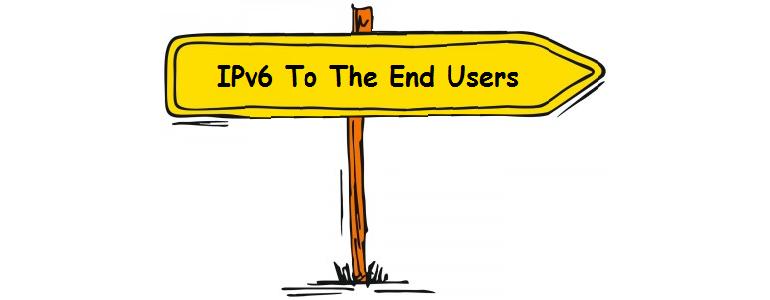IPv6 To The End Users
 IPv6 stands for Internet Protocol version 6. A protocol is a set of rules that enable communication between devices. Roughly, the protocol is a “language“. The IP is the foundation of the Internet, and the version currently used is version 4 (IPv4).
IPv6 stands for Internet Protocol version 6. A protocol is a set of rules that enable communication between devices. Roughly, the protocol is a “language“. The IP is the foundation of the Internet, and the version currently used is version 4 (IPv4).
IPv6 is needed because the free IPv4 addresses are running out. Forecasts indicate that they will be depleted by 2012. No new IP numbers would be too complicated to connect new users to the Internet. In IPv6 the number of addresses available is much larger than in IPv4, which will allow continued growth of the network. It is expected that both IPv4 and IPv6, work side by side on the Internet for many years. But in the long term, IPv6 will replace IPv4.
If we compare the IP address with the address of a house, with the adoption of IPv6, it will be as if all households gain a new number, but unlike the former, as a code. Thus the houses would still have your old number and the new code, they would not mix or confuse, because it would be different. Both could be used to arrive at homes, but when they all received the new code, the old could be left out.
The deployment of IPv6 should be transparent to end users (domestic). That is, if all goes well, little will change, your computer will be automatically configured, the Internet will continue to function and evolve, and you will notice, over time, making communication more easier between applications and people, such as of video conferencing, VoIP and collaboration, among others.
Some things will be easier. For example, if you have a small network in your home with multiple computers or other devices, each will have a fixed IP address and valid on the Internet. This means that you no longer need a computer or router that will be responsible for connection sharing (technically, we call it NAT – Network Address Translation).
With the valid IPs, it will be easier to access remotely and safely. You can, for example, use your home printer from the computer of your office, if desired. If other equipment in your house are connected to the Internet, such as stoves, refrigerators, coffee makers, lights, surveillance cameras, etc., you can control them or view their status from the distance.
If the deployment of IPv6 fails, you will notice that the Internet will continue to work … But probably the pace at which new applications will decrease, it will be a very interesting show. Perhaps access to the network will also becomes more expensive.
News: Implementation Of IPv6 In Our Data Center
- How Cloud Computing Is Changing The Labor Market - March 25, 2015
- Adopting Infrastructure as a Service Can be a Good Deal - March 17, 2015
- Will Virtualize? Take These Six Points Into Consideration - March 12, 2015
